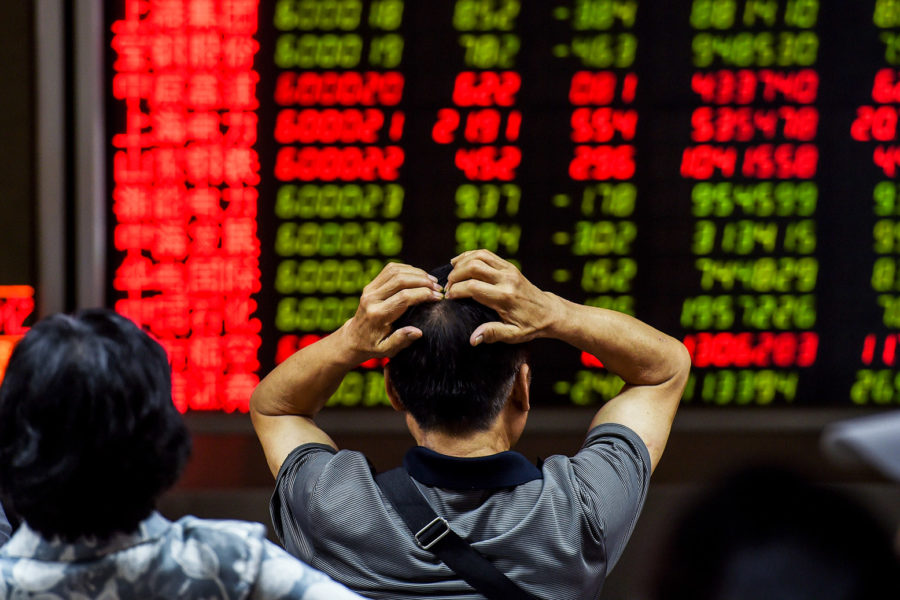China’s economy slows down as it adjusts to its punishing zero-Covid strategy, and weakening global market demand.
The July-September quarter official growth figures will be available soon. If the world’s second largest economy shrinks, it increases the chances of a global economic recession. Beijing’s target of a 5.5% annual growth rate is no longer possible, although officials have minimized the importance of meeting the goal. China barely avoided contraction during the April-June quarter. Some economists don’t expect any growth this year.
Although the country is not facing high inflation like the UK and the US, it faces other problems. The factory of the world suddenly has fewer customers domestically as well as internationally. Growth is also being hampered by trade tensions between China, the US and other major economies like Japan.
The yuan’s performance against the US dollar is set to be its worst in many decades. Investors are scared by a weak currency, which can cause uncertainty on financial markets. It makes it hard for the central bank of the country to inject money into the economy.
This all happens at a moment when President Xi Jinping is at the highest stakes – he is expected secure an unprecedented third term at The Communist Party Congress (CPC), which starts on 16 October.
What is the problem?
1. Zero Covid is wrecking havoc
Covid outbreaks have been affecting economic activity in many cities, including Tianjin and Shenzhen, as well as other manufacturing centers like Tianjin and Tianjin.
Also, people are not spending as much money on food, beverages, retail, or tourism. This puts major services under severe pressure.
According to the National Bureau of Statistics, manufacturing activity seems to have rebounded in September.
This could be due to the fact that the government is investing more in infrastructure.
It came after two months of stagnant manufacturing. It raises questions considering that a private survey revealed that September saw a decline in factory activity, with new orders, output and employment all falling.
Due to higher interest rates, inflation, and the war in Ukraine, demand in countries like the USA has also declined.
- Zero Covid holds danger for China’s Xi
Experts agree Beijing could do more to stimulate China’s economy. However, there are few reasons to do so until the Covid is gone.
Louis Kuijs (chief Asia economist, S&P Global Ratings) stated that “it is not worth investing money in our economy if people can’t expand or businesses can’t spend the money.”
2. Beijing is not doing enough
Beijing has responded by announcing a 1 trillion Yuan ($203bn;PS180bn) plan in August to boost small businesses and infrastructure.
However, officials have a lot to do to increase spending and create jobs.
This includes a greater investment in infrastructure, an easier borrowing process for home buyers, property development companies, local government, as well as tax breaks for households.
Mr Kuijs stated that the government’s response to economic weakness was modest in comparison to previous economic downturns.
3. China’s property market in crisis
Slow growth has been caused by weak real estate activity and negative sentiment within the housing sector.
This has had a devastating effect on the economy as property and other industries that are related to it account up to a third China’s Gross Domestic Products (GDP).
Kuijs stated that when confidence in the housing market is low, people feel uncertain about the economic outlook.
Some home buyers are refusing to pay mortgage payments on unfinished houses, and others doubt that their homes will ever be finished. The demand for new homes is decreasing, which has led to a decrease in imports of construction materials.
Despite Beijing’s attempts to support the real estate market this year, many cities have seen their home prices drop by more than 20%.
Analysts say that authorities may need to do more to restore trust in the real-estate market, with property developers facing increasing pressure.
4. Climate change is making things worse
China’s industries are beginning to feel the effects of extreme weather.
In August, a severe heatwave and drought hit Sichuan’s south-western province, along with Chongqing, in the central belt.
The demand for air conditioning soared and overwhelmed the electricity grid, a region almost entirely dependent on hydropower.
Factories including those of major manufacturers such as Foxconn and Tesla were forced to reduce hours or close completely.
China’s Statistics bureau reported in August that profit margins in the iron- and steel industries were down more than 80% in the first seven month of 2022 compared to last year.
Beijing eventually came through with tens to billions of dollars to help farmers and energy companies.
5. China’s tech giants are losing investors
The two-year-old regulatory crackdown against China’s tech giants is not helping.
Tencent and Alibaba both reported their first revenue drop in the last quarter. Tencent’s profit fell by 50% while Alibaba’s net income dropped by half.
Tens of thousands have lost their jobs as young workers, resulting in a jobs crisis that sees one fifth of those aged 16-24 unemployed. This could have a negative impact on China’s productivity growth and growth over the long-term.
Investors also sense a shift in Beijing – some of China’s most successful private businesses are being scrutinized more as Mr Xi gains power.
Foreign investors are dumping money on the table as state-owned businesses appear to be in demand.
Japan’s Softbank drew a large amount of money from Alibaba while Warren Buffet’s Berkshire Hathaway sold its stake in electric vehicle manufacturer BYD. Tencent had $7bn in investments withheld during the second half.
The US is crackingdown on Chinese companies that are listed on its stock exchange.
S&P Global Ratings stated in a recent note that “some investment decisions are being delayed, and some foreign firms are seeking to increase production in other countries.”
The world is getting used to the fact Beijing is not as open to business as it used be. But Mr Xi is risking China’s economic success in recent decades.

